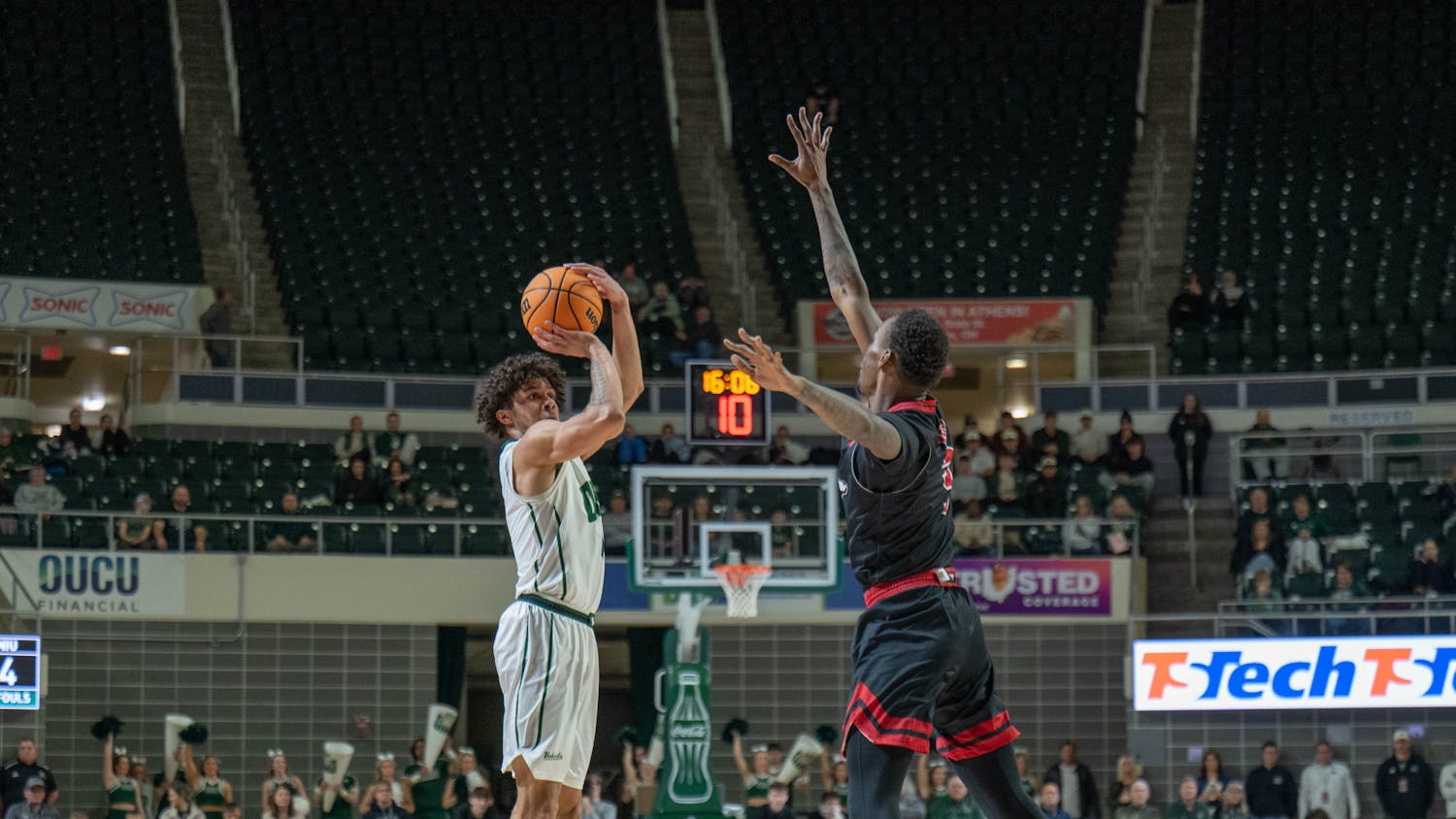On Wednesday, the Diversity Leadership Institute held an Anti-Bias Education program to discuss biases within the education system and how they can be addressed on Ohio University’s campuses.
According to the institute’s website, it was founded to bring individuals at and around OU together to “share, learn and rigorously explore salient diversity, equity and inclusion topics.” Each year, the institute follows a particular theme throughout the entirety of the program which allows participants to engage and reflect in order to make the community more inclusive and equitable.
Duane Bruce, executive director of Diversity and Inclusion at OU, said this year’s programming marks the fourth year for the institute.
“The Institute was initiated under the direction of Dr. Gigi Secuban in Spring 2019 when she started in the inaugural Vice President for Diversity and Inclusion role,” Bruce said in an email. “Over 210 members of the University and local communities have registered for the DLI.”
The program began with a discussion led by guest speakers Lara Trubowitz and Tabari A. Coleman which occurred at 9:30 a.m. to 11:00 a.m. via Microsoft Teams.
Bruce opened the event and OU President Hugh Sherman made opening remarks. Sherman spoke of the students who hosted the town hall meeting in response to the recent racial hate crimes on campus and praised the students for voicing their concerns.
Shortly after the opening remarks, the speakers began their presentation. Both Coleman and Trubowitz represented the Anti-Defamation League, or ADL. Coleman, who is a facilitator for ADL, said it is a national civil rights and human relations organization.
“We fuel ourselves as an anti-hate organization with the mission to stop the defamation of the Jewish people and to secure justice and fair treatment for all,” Coleman said. “We work in the realm of civil rights, education, law enforcement, hate crimes.”
During his portion, Coleman spoke of the basis of anti-bias education in order for the audience to recognize what biased language and actions look like and how they can be dealt with on campus.
“The goal for all of our programming is for it to be interactive for audiences to reflect on how they connect with and relate to it, looking at their personal experiences and socialization and thinking about the application in both their professional and personal lives,” Coleman said.
Trubowitz, who is the education director at ADL midwest, followed Coleman’s presentation with her own, referencing what ADL refers to as the “state of hate”, which showcases the statistics of hate crime incidents across the country.
“The anti-bias framework that we use (helps) to set campuses up so that it can be better equipped to combat those incidents to ensure those incidents occur less and less,” Trubowitz said.
Trubowitz showcased various models, such as the hate/uncycled model, with five steps: prevent, prepare, respond, heal and educate. The model’s goal is to develop a proper plan that serves the entirety of the campus community when a hate crime is committed.
“It's really a template for how campuses can work across constituents, across communities, to equip everybody from a chancellor Board of Regents to an incoming student to work together with the same vocabulary and the same knowledge base to protect (themselves) in the face of hate,” Trubowitz said.
After their respective speeches, the floor was opened to a discussion, moderated by Micah McCarey. Their discussions were a preview to the remainder of the program, which consisted of other training sessions.
The sessions included anti-bias training workshops, which were available in advanced beginner and intermediate/advanced versions, and the program concluded with an institute reception at the OU Inn from 4:30 p.m. to 6:00 p.m.
By having such direct and interactive elements to the program, Coleman said it will help the attendees to be able to create an inclusive environment where all students can feel seen, heard and valued.
“I think all of us benefit from the opportunity to figure out how to hold space for one another, to look at how our socialization has led us to view different groups in different ways,” Coleman said. “The hope is that we are able to introduce them to some tools, some skills and have them begin applying that.”
For students at OU in particular who attended the events, Trubowitz said she hopes the information is helpful to them in understanding the impacts that discriminatory and biased actions have on campus.
“I hope that they understand that incidents that occur at Ohio are not occurring in a vacuum,” Trubowitz said. “They're part of a larger pattern.”
Beyond this program alone, Trubowitz hopes that OU and other universities will continue to engage in these conversations to create authentic spaces that are inclusive and equitable to everyone.
“It's great to see that the university is taking this on, I think all universities should be looking at and having these conversations, realizing the role that they play,” Trubowitz said. “We should really be about discourse and debate, holding space for different views and perspectives and seeing those as opportunities to learn from one another.”






